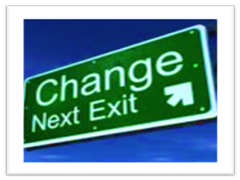I went to an interesting talk last night, Creativity and Collaboration, at The Purcell Room in London. It was a discussion, demonstration and performance on the power of collaboration with writer Margaret Heffernan, surgeon Roger Kneebone (what a brilliant name for a surgeon!) and musicians Joanna MacGregor and Andy Sheppard.
Our culture is fixated on winning – whether that’s TV shows turning hobbies into competitive sports (think baking, allotments and dressmaking) or corporate organisations who routinely measure performance to weed out the weakest and focus attention on the strongest or ‘Hi-Per’ as in ‘High Performance’.
During the discussion, each panellist shared their ideas about the value of collaborative working – essentially the antithesis of our current culture of winning – whether that’s a surgeon in the operating theatre, an entrepreneur putting a team together or musicians playing and improvising. The best performing collaborations worked in such a way that mutual understanding becomes instinctive and the whole is greater than the sum of its parts. Tacit knowledge of each other, built through years of trust, respect, conflict and osmosis, seems to be the key to successful collaborations. But why collaborate at all?

Margaret Heffernan, author of
A Bigger Prize: Why Competition isn’t Everything and How We Do Better, explained how competition is actually destructive by relaying the story of an experiment with chickens.
 While studying natural selection, William Muir, a geneticist at Purdue University, ran an experiment measuring the egg-laying productivity of two flocks of chickens. The first group was a free flock, the birds could roam and mingle as they pleased, while the second comprised only the most productive birds who were specially picked for their ability as the best egg-layers. The two flocks of birds were then left alone to their own devices for a few generations. When they looked at the birds again, the free flock birds were laying eggs at a furious pace and were healthy. But for the descendants of the ‘high achievers’, it was a different story. Most had been killed by hens that saw them as rivals, and the few survivors were in a sorry state, harrying and pecking at one another unforgivingly.
While studying natural selection, William Muir, a geneticist at Purdue University, ran an experiment measuring the egg-laying productivity of two flocks of chickens. The first group was a free flock, the birds could roam and mingle as they pleased, while the second comprised only the most productive birds who were specially picked for their ability as the best egg-layers. The two flocks of birds were then left alone to their own devices for a few generations. When they looked at the birds again, the free flock birds were laying eggs at a furious pace and were healthy. But for the descendants of the ‘high achievers’, it was a different story. Most had been killed by hens that saw them as rivals, and the few survivors were in a sorry state, harrying and pecking at one another unforgivingly.
Does this sound like your workplace? Margaret alluded to the fact that it does sound like many workplaces. I hope it doesn’t sound like yours, but I fear for many that coming top, being the best, is at great expense both to one’s own health and the health of those around you and the health of the business you’re working in. We talk about pecking order, being hen-pecked, being a chicken (i.e. a wimp), headless chicken, chickens coming home to roost, to chicken out. I’m sure there are more. Maybe there’s something in this…? It certainly resonated with the audience as there were gasps as Margaret relayed the story.
I didn’t take notes during the session (perhaps I should have done), but I came away with some thoughts…
Competition isn’t the be-all and end-all. Collaboration is a much more successful, if more problematic and difficult strategy. Egos get in the way. The chemistry might not be right. Timing might be out of kilter. Life throws a curve ball at you. There are lots of reasons why collaborations fail but that doesn’t mean we should stop trying.
I’ve always enjoyed collaborative work. Perhaps that’s why I still remember my years at Swan Youth Theatre so fondly – we joined together with a common goal, we had limited resources, but found a way to make a production happen, we fought and we argued, we got tired and fraught, but we helped and supported each other, we learned new things and we had a great time doing it. The majority of my early work experience was in stark contrast to this and was much more dog eat dog and much of it was very unpleasant as a result. And pretty much all my schooling from the age of 9 upwards was about ranking in class and being in the top stream. I’m not sure what good it did any of us. I’m quite sure I learned much more during my time at youth theatre.
The panel were also supportive of failure. Our culture hasn’t given much credence to failure, yet we learn most from our failures. All the panellists reiterated that failures (things not going as expected, bum notes, things not going to plan) gave them more agility to deal with change and difficulties in the future. It strengthened the bond of the collaboration in many instances. Margaret explained that failures should be more than tolerated and that we need to learn from them. She said the only failure that she would reject in the workplace is repetition of the same mistake which shows a lack of attention.
The other key thought I had coming away from the talk was about the length of time needed to forge strong working relationships in teams – whether those teams work together from time to time or more frequently. A lot of time needs to be spent in each others’ company in order to build up the trust, respect and knowledge of each other in order to work well together. You have to find ways to overcome conflict too and in doing all of that, you’ll be able to work in harmony – the kind of harmony Roger Kneebone described when sharing a story about the surgical team who had worked for decades together. He brought the team back together for a surgical simulation to try to get to the bottom of how surgical teams work. The simulation was filmed and when you slowed the film right down to see the interaction between the nurse and the surgeon, you could see that the nurse actually passed the instrument to the surgeon before he actually asked for it. That’s tacit knowledge at play. And takes years of practice.
Yet in our current work culture, it’s very common for employees to change jobs every year or two. Research in the US suggests that the average number of jobs an individual will have between the ages of 18 and 44 is 11. That’s a lot of job changes. And that means that these strong working relationships don’t have time to be fostered. Very often when I work with a client from a large company, I’ll know more people at that company than they do. People simply don’t have the time or don’t take the time to get to know their work neighbours. I wonder what we’re missing out on because we’re not forging strong enough connections with each other?
I’ll be adding Margaret’s book to my reading list.


